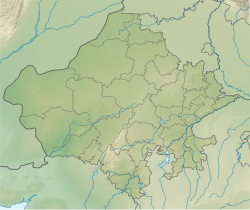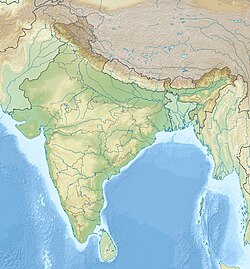| Sarju Sagar Dam सरजू सागर बांध | |
|---|---|
 | |
| Official name | Kot Dam or Kot Bandh |
| Country | India |
| Location | Kot, Jhunjhunu |
| Coordinates | 27°39′2″N75°25′10″E / 27.65056°N 75.41944°E |
| Purpose | Water Storage, Irrigation |
| Status | Operational |
| Opening date | 1924 |
| Dam and spillways | |
| Type of dam | Masonry with embankment main sections |
| Height | 7.6 m (25 ft) |
| Length | 80 m (260 ft) |
Sarju Sagar Dam also known as Kot Dam is a dam across the Shakambhari Hills. It is situated 13 kilometres from Udaipurwati town in Jhunjhunu, Rajasthan, India. [1] The dam was constructed between 1923 and 1924 for the purposes of Irrigation and Water Storage. [2] [3]
Contents
A river flows from it that's name is "Saptrupi river", this flows from Kot dam to udaipurwati








